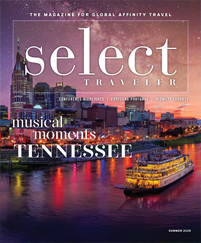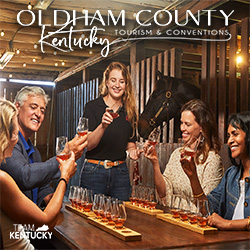
Like any American industry based on discretionary income, the gaming business has seen a drop in revenues since the economy took a sour turn in 2008. But not all news is bad — although Las Vegas and Atlantic City have seen significant losses, many smaller destinations throughout the country have reported positive numbers in 2010. And new legislation passed recently in various states means that travelers have more choices than ever for a gaming vacation.
Decreased spending
Casinos are still popular with Americans, and attendance numbers have remained relatively steady over the past two years. But since the economic crisis began at the end of 2008, lower employment numbers have depressed consumer spending at casinos.
“When people started being unemployed, there was less discretionary income, and that still hangs on,” said Frank Fahrenkopf, president of the American Gaming Association. “A lot of people are coming to the casinos, but they’re on very tight budgets, and they’re not spending what they were spending two years ago. I don’t expect that to increase until employment picks up.”
Annual statistics back those ideas up: One national poll shows that as many as 62 million Americans visited a casino last year. And yet 2009’s industrywide revenues were down 5.5 percent from 2008.
But those national numbers don’t reflect a more interesting trend. Although traditional gaming giants such as Las Vegas and Atlantic City have suffered, other destinations report that business remains strong.
“American gaming is not monolithic,” Fahrenkopf said. “The portion of the industry that we call the ‘drive-in’ market — places where people can drive in, have dinner, see a show, gamble and go home — they did very well. Many had profits throughout the past two years.”
States come on board
It is that prospect of profits — coupled with potential tax revenue — that has spurred more states throughout the country to green-light casino gaming where it didn’t exist before. Gaming resulted in $5.6 billion in tax revenues in 2009, and state governments are hopeful that building new casinos will lead to increased tourism and development as well.
Some of the pain in Atlantic City right now can be directly attributed to the growth of gaming in Pennsylvania, and particularly Philadelphia, which had traditionally contributed heavily to attendance in the nearby New Jersey destination. There are currently nine casinos operating in Pennsylvania out of a possible 14 allowed by state law. In July, the state began allowing table games at casinos that had previously been restricted to slot machines only.
This fall, the SugarHouse Casino opened in Philadelphia on the banks of the Delaware River. Officials hope to see 2 million visitors come to the casino each year. And Atlantic City gaming may be further threatened by the development of a new casino at Aqueduct Racetrack in New York City. Plans call for 4,500 slot machines and video table games to be put into the new casino, called Resorts World New York.
“One of the areas of real growth over the past couple of years has been this concept of ‘racinos,’” Fahrenkopf said. “In a state, the decision was made a long time ago to allow gaming in the form of a race track at a certain destination. All you’re doing by adding slot machines is changing the mix of gaming at that venue. So you’ve got a lot of states that have looked at and will continue to look at spreading the racinos.”
Maryland also recently approved five slot parlors throughout the state. The first, Hollywood Casino Perryville, opened this fall with 1,500 video lottery terminals.
Getting into Dodge
Kansas jumped on the gaming bandwagon in 2007, and is now seeing revenues from its first casino, which opened in the middle of 2009.
“In 2007, the state of Kansas passed an expanded lottery act that would allow for destination casinos in four distinct parts of the state,” said Mike Deines, director of communications for the Kansas Racing and Gaming Commission. “This was a legislative decision. We are surrounded by states with gaming, tribal or otherwise. There was a lot of Kansas money leaving the state, so part of the reasoning was that we needed to keep that money in the state.”
Kansas’ first gaming facility, the Boot Hill Casino and Resort, opened last year in Dodge City, a historic tourist destination in the western part of the state. Boot Hill features around 600 slot machines and 15 table games. The facility also has a restaurant, a snack bar and several lounges.
A second phase of development opening next year will bring a hotel to the property; the city is also finishing construction of an event center on an adjacent piece of land.
In the spring of 2012, Hollywood Casino at Kansas Speedway will open, on the western side of the Kansas City border. The casino will be much larger than Boot Hill, with around 2,000 slot machines and 60 to 70 table games.
Both casinos are owned by the state, a fairly novel concept.
“Kansas was one of the first states to go this route,” Deines said. “The Kansas Lottery owns the games and the software, and they contract out to someone to manage the facilities. Twenty-two percent of the revenue goes to the states.”
Ohio votes ‘yes’
A recent ballot initiative in Ohio brought a change to the state’s constitution allowing casinos in Cleveland, Cincinnati, Columbus and Cleveland. “Work is underway in all of the communities,” said Tamara Brown, vice president of marketing for the Ohio Division of Tourism. “In Cleveland, they have named Harrah’s as the management company, and the hope is to open a Phase I casino sometime next year. It will be in a historic building called the Higbee Building, right on the public square.”
The casino will occupy the first two floors of the building with both slot machines and table games. The second phase, scheduled to open in 2013, will include a new building construction. All told, the project will cost $650 million and is projected to attract 8 million visitors annually.
On the opposite end of Ohio’s Lake Erie shore, work is underway on the Hollywood Casino Toledo, a $250 million project slated to open in early 2012. The casino will have approximately 2,000 slot machines and 60 table games.
The casino developers in both Cleveland and Toledo have committed not to build hotels with their properties, in order to help boost occupancy at existing local hotels.









